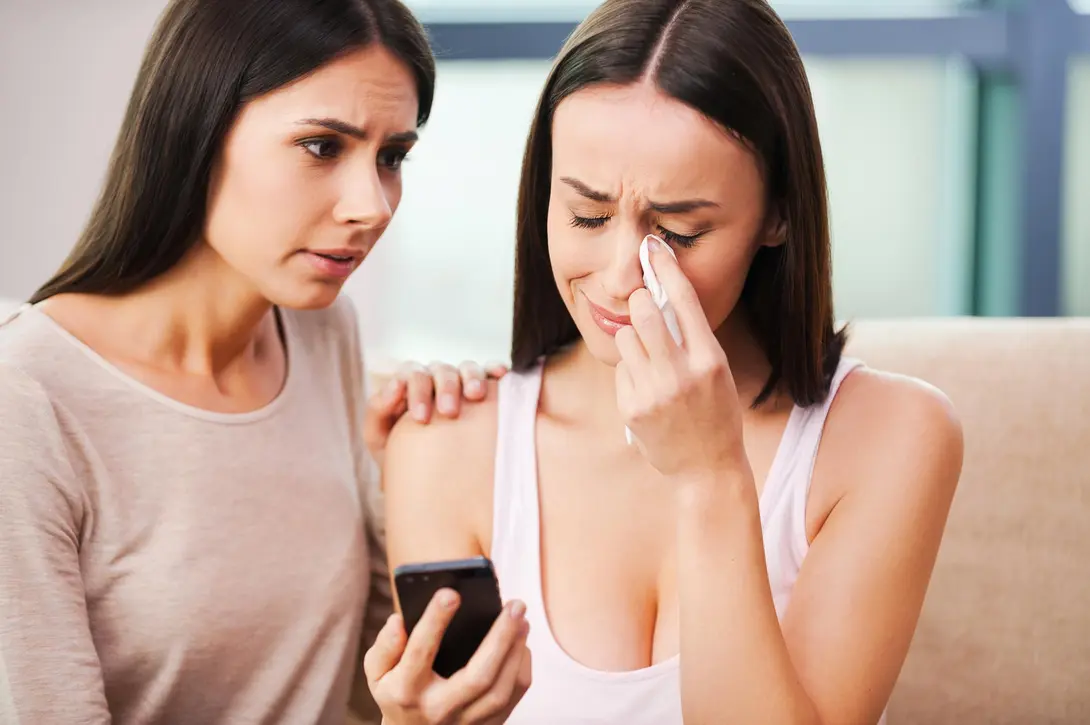Friends are a fundamental part of our lives. They provide us with support, company and fun. However, not all friendships are good for us. Toxic friendships can have a negative impact on our mental and emotional health.
It is important to identify these types of interactions in our group because they can end up affecting our body and mental well-being.
But do you know how to identify those negative friendships?
Signs that we have bad friends
During friendship with these toxic people we can observe some signs that will tell us that they are bad friends. These signs can be emotional, behavioral or physical.
Some of them are:
There is no reciprocity: they receive and you give
Friendships should be reciprocal, based on mutual support. If you find that you are constantly giving, whether in terms of time, attention, or emotional support, without receiving anything in return, it is a clear sign that you could have toxic friends.
They don't support you because of how you are
Your friends should accept you as you are, with all your quirks and flaws. If you feel like you're being criticized or made to feel bad for being yourself, it's a sign of a negative friendship.

You can't trust him with your privacy
Trust is essential in a solid friendship. If you don't feel comfortable sharing your most intimate thoughts or secrets with your friends, it's a sign that you can't trust them.
They bring out the worst version of you
Friendships should inspire you to be the best version of yourself. If you find yourself acting in a negative or destructive way around certain friends, it's an indicator that they could be bad influences.
They usually disappoint you
If you constantly feel disappointed or ignored by your friends, it's a sign that they may not be committed to the relationship.
They do not respect your partner, family or children
Respect for your loved ones is essential. If your friends show disrespect towards your partner, family or children, this can be detrimental to your relationships and well-being.
It makes you feel bad
A healthy friendship should make you feel good about yourself. If, on the other hand, you constantly feel bad or dissatisfied after spending time with friends, it's time to reconsider the relationship.
They talk bad about you behind your back
Betrayal and defamation are clear signs of a toxic friendship. If you find that your friends are talking badly about you behind your back, it is an indication of a lack of loyalty and respect.

They compare you to other people
Constant comparisons can undermine your self-esteem and self-confidence. If your friends compare you to others and make you feel inferior, it's a warning sign.
They don't ask for forgiveness
Strong friendships involve the ability to apologize and forgive. If your friends never admit their mistakes or apologize when they hurt you, it's a sign of lack of emotional maturity.
They are eternal victims and you must treat them with caution
Some people constantly see themselves as victims and can drain your energy with their constant complaining and negativity. Maintain a healthy distance from such friends to protect your own mental health.
How do bad friendships affect us?
Your other relationships suffer
Toxic friendships can negatively affect your other relationships, including family and romantic ones. You may begin to see the world through a negative lens and carry that negativity into other areas of your life.
You don't feel supported
Lack of emotional support from your friends can leave you feeling alone and helpless during difficult times.

Your stress increases
Toxic friendships can place additional stress in your life, which can have a negative impact on your physical and mental health.
Low levels of self-esteem
Toxic friendships can make us feel bad about ourselves.
What should I do if I have a toxic friendship?
Talk about it with the person
If you feel like a friendship is toxic, consider talking to the person and expressing your concerns. Sometimes open communication can solve problems and improve the relationship.
Ask yourself about friendship
Reflect on the friendship and evaluate if it really benefits you or harms you. Sometimes realizing that a friendship is toxic is the first step to freeing yourself from it.
Reduce contact with your friend
If you don't feel comfortable talking to your friend about how you feel, you can start to reduce contact with him or her.
Cut the relationship
If you have tried talking to your friend and reducing contact, and the relationship is still toxic, it may be necessary to end the relationship completely.
Build new relationships
Don't be afraid to look for new friendships that are more positive and healthy for you. Surrounding yourself with people who support you and make you feel good about yourself is essential for your well-being.

Toxic friendships can have a negative impact on our lives. It is important to identify them and take measures to protect ourselves. If you think you have toxic friendships, talk to a trusted friend or therapist. They can help you assess the situation and take necessary action.
Do you identify with any of the signs of a toxic friendship? Do you have any advice to help others identify and move away from toxic friendships? Share this article with someone who may need it.

Comentarios